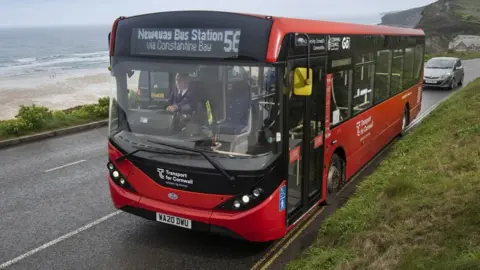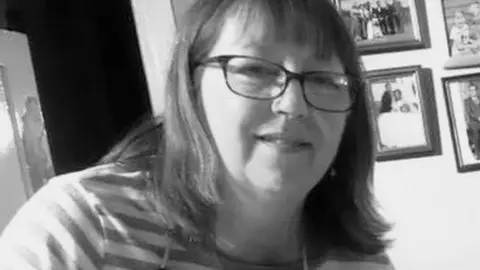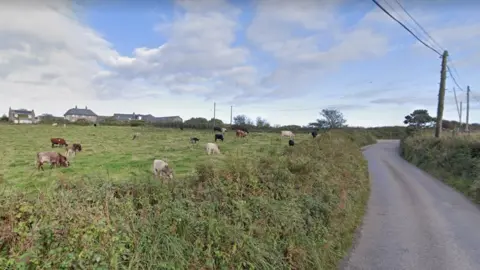Changes to bus services leave residents 'isolated'
 Mary Jones
Mary JonesSome people in rural areas have said they have been left "isolated" and "trapped" after changes to bus services.
One pensioner said she "felt sick" about the impact it would have on her.
Go South West, which announced changes to services in Cornwall and Plymouth, said it was "reshaping the network to help the greatest number of people".
Cornwall Council said the changes were in response to demand to make the network financially sustainable.
The issue was raised by councillors at a full council meeting on Wednesday after the changes started on Sunday 10 April in Cornwall.
 PA Media
PA MediaSome changes took effect on the same day in Plymouth with the majority starting on 24 April.
Susan Margiotta, a worship leader who lives in a hamlet in south-east Cornwall, told the BBC she "felt sick" that her three times weekly service had been scrapped.
The 69-year-old pensioner said: "I don't drive... I am now totally isolated... My bus was my independence."
Ms Margiotta said she would no longer be able to reach the Baby Basics charity in Liskeard where she volunteered as an assistant manager one day a week as she could not afford £30 for a taxi.
 Susan Margiotta
Susan MargiottaThe government introduced a £23.5m pilot scheme for lower fares in Cornwall to encourage use on the same day some services were reduced.
In Plymouth, ticket price increases were introduced at the same time.
Mary Jones said her hamlet in west Cornwall had lost its service and she was worried for the mental health of an elderly neighbour who was now "trapped" at home.
"I have lived in Towednack over 30 years and we have always had a bus service.
"I cannot understand how such a radical change can be made without consultation," she said.
"I have used the 16a to avoid using my car whenever possible," she added.
 Google
GoogleDavid McCaffrey, 77, said he avoided driving due to his cataracts and it was "unacceptable" the hourly service in Gunnislake had been halved.
"I have needed treatment quite a lot in Derriford Hospital recently - now it's almost impossible for me to get back so I'll have to use the car," he said.
"The bus is always well used, I would say about half full to three quarters full," he said.
 David McCaffrey
David McCaffreyCarolyn Giles, head of people and operations at operator Go South West, said fewer people were using services since the Covid-19 pandemic and they were "re-shaping the network to make sure we are using the resources we have to help the greatest number of people".
She added that since 2020, the company had invested £25m in rural transport services and "works constantly with local authorities to do all it can to keep communities connected".
A spokesperson for Cornwall Council said: "The total mileage operated by the supported bus network in Cornwall will reduce by less than 1% overall.
"Changes made to provision are in response to changes in demand - our aim is to make the network more resilient and financially sustainable.
They added they "hoped it was a decision we can revisit should passenger numbers increase" and advised there were community transport groups that could provide help, such as Age UK.

Follow BBC News South West on Twitter, Facebook and Instagram. Send your story ideas to [email protected].
